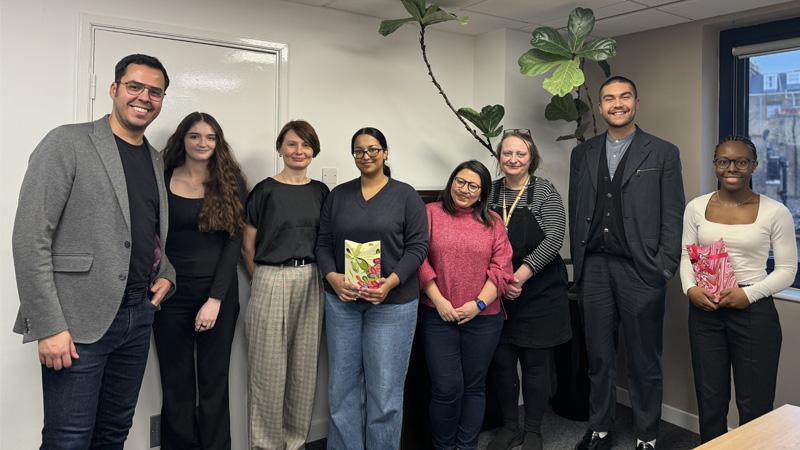Westminster City Council challenged students from the University of Westminster to come up with innovative ideas on how to repurpose used wine corks in the Cork Innovation Challenge, giving them the chance to explore creative solutions to promote sustainability.

The winning students were Assia Ibrahim, a Biological Sciences BSc Honours student, Holly Crawford and Andreia Andre, Marketing Management BA Honours students, and Nadezda Zelve who is currently studying on the Biomedical Sciences BSc Honours course. They brought forward a wide range of innovative ideas including using wine corks in hydroponic units for plant growth, in agriculture for seed improvement and as hotel room accessories.
The challenge was set by Westminster City Council who awarded each winner with a £100 voucher to celebrate their innovative solutions.
Challenge winner Assia Ibrahim said: "I want to express my gratitude to Dr Pooja Basnett, Dr Linda Percy and Westminster City Council for posing such a thought-provoking competition. Making even a small contribution to this important goal of building a sustainable future has been incredibly rewarding, and I'm grateful for the opportunity to be involved."
Dr Pooja Basnett, Senior Lecturer and Co-Course Leader for Biological Sciences BSc Honours, added: "The Cork Innovation Challenge was a great way for the students at Westminster and Westminster City Council to collaborate. Student's innovative, practical solutions for repurposing used wine corks demonstrate creativity and sustainability in action. Congratulations to the winners and all participants!"
Fernando Cabral, Commercial Development Manager for Westminster City Council Commercial Waste, said: “Veolia and Westminster City Council Commercial Waste are passionate about fostering the next generation of innovators to help to bring about ecological transformation. Reducing waste and finding circular solutions like the cork project.”
Their innovative ideas directly contribute to the United Nations Sustainable Development Goals (SDG) 11: Sustainable Cities and Communities, 12: Responsible Consumption and Production and 13: Climate Action. Since 2019, the University of Westminster has used the SDGs holistically to frame strategic decisions to help students and colleagues fulfil their potential and contribute to a more sustainable, equitable and healthier society.
Find out more about sustainability at Westminster in the University's latest Sustainable Development Goals Report.




